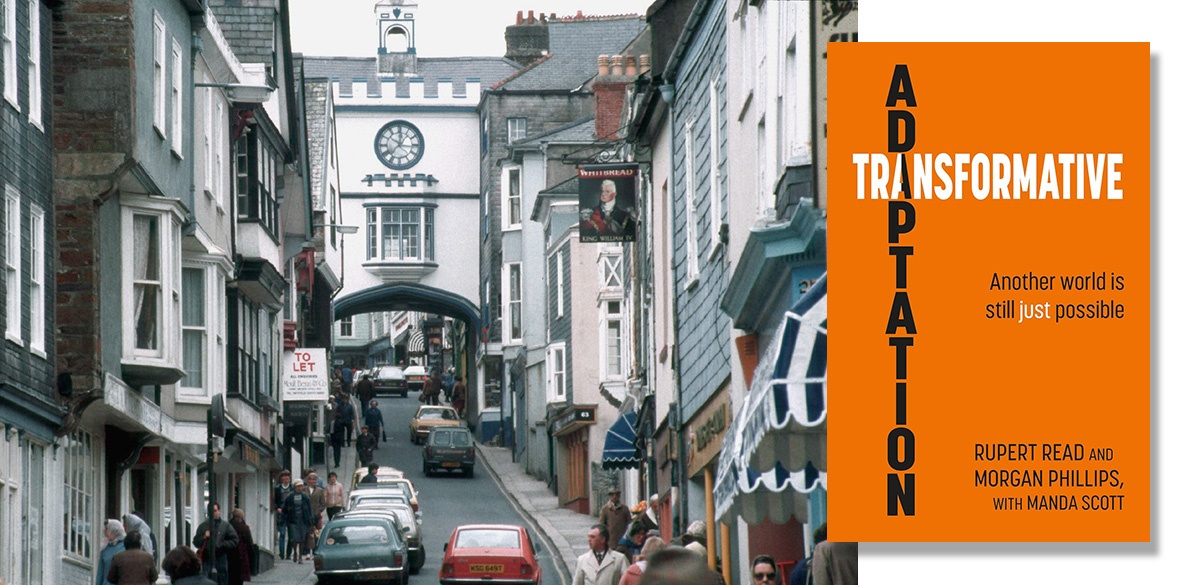This is the last article you can read this month
You can read more article this month
You can read more articles this month
Sorry your limit is up for this month
Reset on:
Please help support the Morning Star by subscribing here
Transformative Adaptation: Another World Is Still Just Possible
Rupert Read and Morgan Phillips, with Manda Scott, Permanent Publications, £10.95
IN 2024 the Guardian polled hundreds of leading climate scientists, finding almost 80 per cent expected at least 2.5°C of global heating by 2100, with almost half anticipating at least 3°C.
According to top climate scientist Professor Stefan Rahmstorf, a 3°C world will be “full of horrors” and “an existential threat to human civilisation.”
Last month another respected climate scientist, Professor Kevin Anderson, confirmed the herculean task facing humanity: “Staying ‘well below 2°C’ now demands global emission cuts of around 7 per cent annually, starting this year — a rate nearly 2 percentage points higher than we saw during the most stringent Covid lockdowns, and that was for just one year.”
It is alarming information and analyses like this that underpins the work of the Transformative Adaptation collective, a new group that has grown out of Extinction Rebellion.
“Too little time is left; and government (and the system) is too profoundly resistant to doing the right thing” Rupert Read warns at the beginning of the collective’s refreshing and inspiring primer. Therefore, he argues we must “take adaptation at least as seriously as mitigation/prevention.”
Read and his co-authors argue for Transformative Adaptation (TrAd for short), which they situate between what they call Shallow Adaptation (eg building higher sea walls), and Deep Adaptation, which is about adapting for societal collapse.
So what is TrAd? Joolz Thompson provides a definition halfway through the book: “A world where transformational change to ourselves and our systems has allowed us to adapt and thrive in balance with all life, with earth.”
Examples given include permaculture, the Transition Towns movement, sustainable farming, climate hubs in every town, and Chris Packham’s Wildcard campaign pushing for landowners such as the Church of England and the royal family to rewild their land.
Novelist Manda Scott provides the longest contribution. And while her ideas about radical change are certainly interesting, I could have done without her recommendation to abandon newspapers in favour of podcasts, and her bizarre/unhelpful claim that “healthy human cultures” in Britain only existed before the arrival of the Romans.
Just 100 pages long, the book feels like it’s at the forefront of thinking seriously about how societies should respond to the long climate emergency ahead of us. However, trying to define a new concept and philosophy can, of course, be difficult. I’m still not entirely sure exactly what TrAd is, or what it would likely look like in practice.
But that feels OK – the co-authors are clear their book is merely “the first word” on the topic, that they don’t have all the answers, and that it’s a fool’s errand to try and predict the future in any detail. Moreover, if TrAd is going to grow into a popular and influential movement, they argue it will be down to all of us to up our level of action and generate change from the bottom up.
With the Labour government and supporting trade unions seemingly obsessed with (climate-destroying) economic growth, searching, paradigm-shifting works such as Transformative Adaptation are more important than ever.







